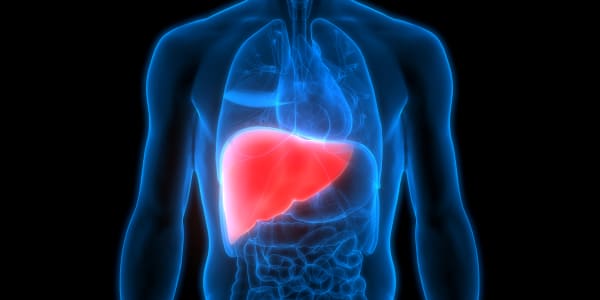Vaping among teens is on the rise at an alarming rate, spurring federal regulators and health officials to start cracking down on the e-cigarette industry for fear the trend will lead to dire health consequences, especially among preteens and teens. It has also prompted Facebook's Occulus to back a pilot program to see how virtual reality technology can help turn the tide.
According to a study published last year by the National Institute of Drug Abuse, 6.3 percent of 14-year-olds and 9.3 percent of 16-year-olds are vaping. (E-cigarettes are handheld electronic devices that vaporize a fluid, which typically includes nicotine and a flavor component.)
Among the reasons for the increase in e-cigarette use among children: They are easy to get — you can purchase them right online — they are difficult for parents and teachers to detect, and there's a strong belief they are safer than cigarettes.
Yet evidence suggests e-cigarettes serve as a gateway for preteens and teens who go on to use other tobacco products, including cigarettes, which are known to cause disease and premature death. For children, exposure to nicotine in e-liquid products, even in small amounts, could lead to death from cardiac arrest, as well as seizure, coma and respiratory failure.
Now the U.S. Food and Drug Administration is cracking down. A few days ago FDA Commissioner Scott Gottlieb said in a statement that they are "conducting a large-scale, undercover nationwide blitz to crack down on the sale of e-cigarettes, specifically Juul products, to minors at both brick-and-mortar and online retailers."
In addition, the FDA is considering regulating e-cigarettes as an over-the-counter drug. "Right now we're looking very actively at could we bring e-cigarettes into the over-the-counter regulatory pathway, which would give us many more tools to look at both safety and benefit, and study whether or not an e-cigarette actually does promote smoking cessation and also give us many more tools to actually study the toxicology associated with it and see what effects it might have on the lung," Gottlieb said in an interview with Meg Tirrell at CNBC's "Healthy Returns" conference on March 28.
Virtual reality could be the game changer
Now a new virtual reality game, called smokeSCREEN VR, is being tested to address the challenges that teens face when it comes to social pressures and the use of e-cigarettes. The pilot program, funded in part by Oculus, a division of Facebook, is a collaboration between PreviewLabs and Play4Real lab, a new division under Yale's Center for Health and Learning Games.
The pilot program will investigate how well virtual reality has the ability to influence perception and the experience of peer pressure. If successful, it will be the first of many VR games created by the Yale Center to address health education and behavioral intervention in adolescents and young adults.

According to Dr. Kimberly Hieftje, a research scientist and director of the Play4Real lab, smokeSCREEN VR is the first pilot-tested VR videogame intervention focusing on e-cigarette prevention in teens. She explained that its purpose is "to provide unique opportunities for teens to build skills and experience the outcomes of risk-taking in a virtual — yet safe — environment."
A study published last month that was a joint effort between Yale and the Department of Preventive Medicine of the University of Southern California observed that "videogames offer the opportunity to engage and educate youth through skill-building and role-playing."
The goal is to provide teens with the opportunity to practice refusal skills, while also correcting their misconceptions about the safety of e-cigarettes.Dr. Kimberly Hieftjedirector of the Play4Real lab
If smokeSCREEN VR is found to encourage positive behavior with its young audiences, more games on other topics will be planned. "Issues I'd like to see our lab focus on are opioid prevention, alcohol use, drug use and risky sexual behavior," says Hieftje.
Additional areas of concern are obesity, teen pregnancy, behavior leading to injury to themselves or others, and suicide. "They will be made available through the Oculus store," she adds, "to anyone who wishes to download the game. We hope schools that have access to VR hardware such as Oculus Gear or Oculus Go will use our games as part of their health curriculum."
More from Modern Medicine:
Controversial study suggests anti-overdose med Narcan increases opioid use
Third-leading cause of death in US most doctors don't want you to know about
YouTube's dark side could be affecting your child's mental health
Why were e-cigarettes selected as the pilot subject? Hieftje cites a recent Surgeon General's report showing a 900 percent increase with young people in the use of e-cigarettes in the past several years. "E-cigarettes are the most commonly used form of tobacco among youth in the United States. We know it can lead to nicotine addiction and increased addiction to other drugs. Given the public health issue, we wanted to approach it with a way that was innovative," she says.
When virtual reality games, using headsets and goggles, caught the imagination if the public more than 30 years ago, they boasted titles such as Robo Killers on the Loose, Blaze Rush, Super Hot and Raw Data, which promised "violence" and "blood." The experience was more immersive than video games had been, and VR popularity and sales soared. But there were negative reactions, too. Parents and others protested that the games encouraged violent behavior among their largest audience: the young.
One such target of the criticism was Oculus, the hardware and software technology company that had been acquired for $2 billion by Facebook in 2014. What often went unmentioned by the critics were Oculus' games that were positive and educational, such as those on music, travel, nature and government, including "The People's House, a guided tour of the White House led by Barack and Michelle Obama and which won an Emmy as Outstanding Original Interactive Program in 2017.
Oculus turns to social good
To further advance its public image, Cindy Bell, director of education for Oculus met with Hieftje in August 2017. Soon after, Oculus offered to help provide an undisclosed amount for a new and novel virtual reality game called smokeSCREEN VR.
To produce the prototype of smokeSCREEN VR, they selected PreviewLabs, founded by Bernard Francois in Belgium in 2010 and now based in the United States. Creation of the prototype began in January of this year. "We spent the first few months conducting focus-groups and developing a Game Playbook, all of which involved pre-production, prototyping and scientific research," Francois explains. He expects the final prototype will be completed by May or early June, although he's hopeful "an early version will be ready for testing this month."
The location if the testing lab will be in central New Haven, as part of the Center for Health and Learning Games. The walls have been painted green; necessary for green-screen technology. Hieftje adds, "We also have a space for individuals to watch what others are experiencing in VR on a monitor. Bringing it to the community has always been our goal, and we'll partner with the New Haven school system to test smokeSCREEN VR with some of the young people they enlist."
The scenario of the prototype itself has not been revealed. But in it Hieftje notes, "Teens are able to actively practice refusing peers using voice-recognition software, and characters in the game respond to the teens depending on what they say. The goal is to provide teens with the opportunity to practice refusal skills, while also correcting their misconceptions about the safety of e-cigarettes."
While acknowledging the help of Oculus, Hieftje emphasizes "this process has definitely been a team effort." And that effort includes the young people especially. "We truly believe that in order to create a game, they have to help in its creation. As play4REAL lab continues to develop games for teens and young adults, they will help us write the content, create the storylines, provide feedback and even do the voice-overs," Hieftje said.
Indeed, if smokeSCREEN VR and those planned to follow are successful, these young voices may eventually be heard across the country and beyond.
— By Ray Sipherd, special to CNBC.com





